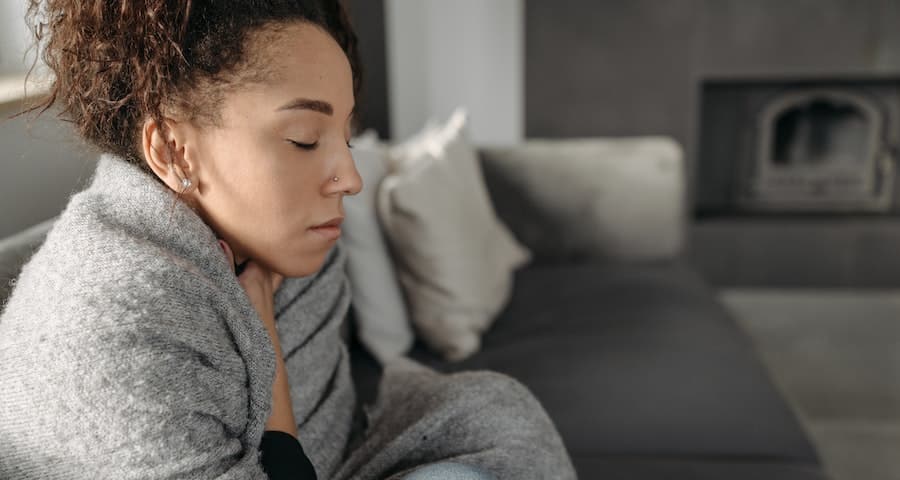Have you ever felt that familiar tingle on your lip after a long day, only to wonder if stepping on a chilly floor could be the culprit? We’ve all heard the old wives’ tales, but when it comes to our health, separating fact from fiction is crucial. So, let’s dive into the world of cold sores and explore the real culprits behind their unwelcome appearance.

Image: diseaeseshows.com
Cold sores, those pesky blisters that appear on and around our mouths, are caused by the herpes simplex virus type 1 (HSV-1). This virus is highly contagious and often spreads through direct contact, like kissing or sharing utensils with someone who has an active cold sore. However, stepping on a cold floor? That’s a different story altogether. While a chill may send shivers down your spine, it won’t trigger a cold sore outbreak.
Understanding the Truth Behind Cold Sores
To grasp why stepping on a cold floor doesn’t cause cold sores, we need to understand the virus’s lifecycle. HSV-1 is a tricky little bug. Once you’re infected, it stays dormant within your body, often lurking in your nerve cells. When something triggers it, like stress, illness, or even sun exposure, the virus reactivates and travels to the surface, causing the characteristic cold sore.
A Closer Look at Cold Sore Triggers
Now, while stepping on a cold floor won’t cause a cold sore, other factors can certainly play a role in triggering an outbreak. Here’s a snapshot of some common culprits:
Stress: Our bodies are exquisitely sensitive to stress. When you’re under pressure, your immune system weakens, making it easier for the dormant HSV-1 to reactivate.
Hormonal Changes: Women, in particular, might notice a correlation between their menstrual cycle and cold sores. Fluctuations in hormone levels can influence the immune system’s ability to keep the virus in check.
Sun Exposure: Ultraviolet (UV) radiation from the sun can suppress the immune system, giving HSV-1 the upper hand. This is why many people experience cold sores during the summer months.
Illness or Weakened Immune System: When you’re battling an illness or your immune system is compromised, your body’s defenses are down, making you more susceptible to viral reactivation.
Trauma: Even a minor injury to the mouth, like a lip or gum injury, can create an opening for HSV-1 to resurface.
Busting Myths and Embracing Facts
It’s important to remember that, while these triggers can make you more vulnerable to cold sores, they don’t actually cause them. The herpes simplex virus, lying in wait, is the instigator. So, next time you feel a familiar tingle, resist the urge to blame the cold floor; look for those other potential culprits instead.

Image: coldsorescured.com
Maintaining Your Immune System is Key
While we can’t completely eliminate the risk of cold sores, we can take proactive steps to minimize the chances of an outbreak. Here’s how:
- Prioritize Stress Management: Engage in stress-reducing activities like exercise, meditation, or spending time in nature.
- Nurture Your Immune System: Fuel your body with a nutritious diet rich in fruits, vegetables, and whole grains. Get enough sleep and stay hydrated.
- Be Sun-Smart: Wear sunscreen with an SPF of 30 or higher, especially during peak sun hours. Wear a lip balm with SPF to protect your lips.
- Practice Good Hygiene: Wash your hands frequently, especially after touching a cold sore. Avoid sharing personal items like lip balms, toothbrushes, or razors.
Can You Get Cold Sores From Stepping On Cold Floor
Conclusion: Living with HSV-1
Although HSV-1 can be a nuisance, remember that it’s a very common virus. Most people experience cold sores at some point in their lives. By understanding the triggers and adopting healthy habits, we can minimize the frequency and severity of outbreaks. So, put your mind at ease – your cold sores aren’t the fault of the cold floor! If you have any concerns about cold sores or other health matters, don’t hesitate to consult with a trusted medical professional.






